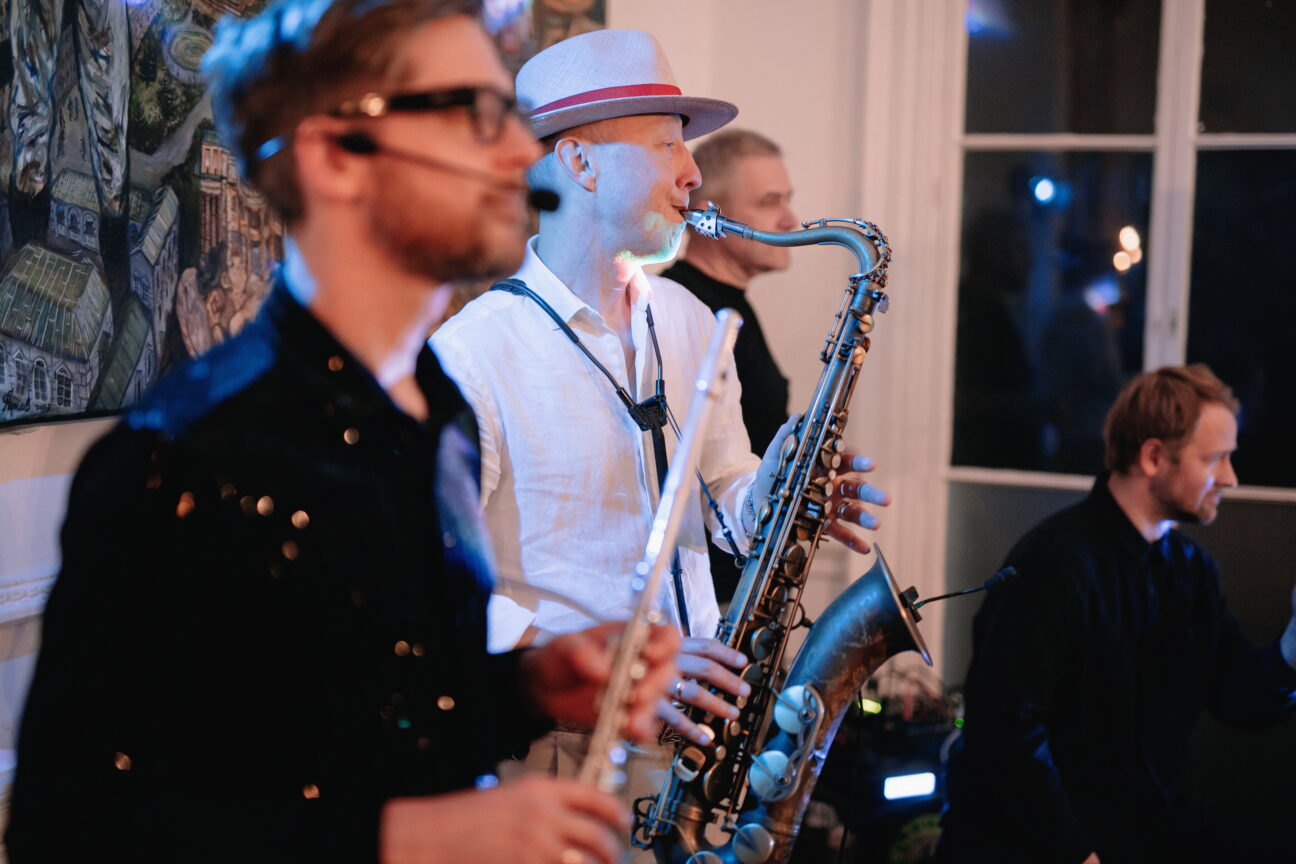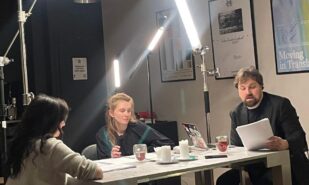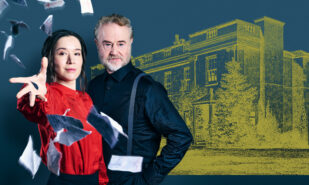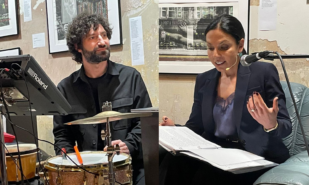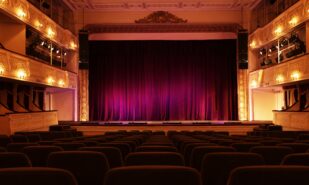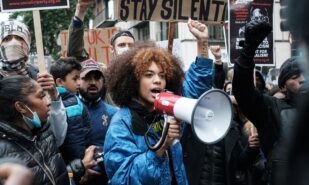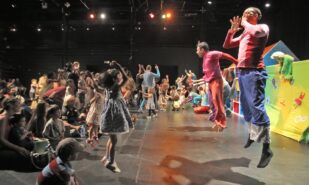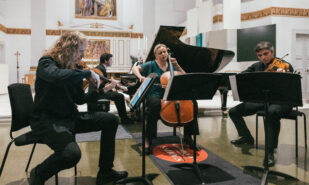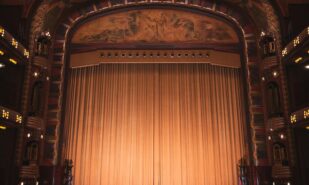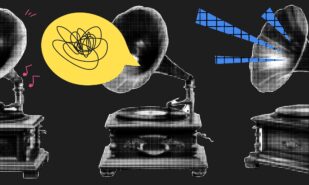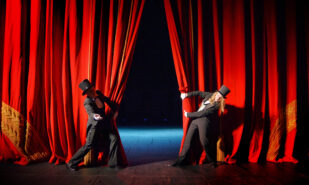Semushkina’s Music Club
Maria Semushkina, an event producer and the dynamic force behind the Usadba Jazz festival, began hosting home concerts in 2016 within the confines of her Moscow apartment. As these gatherings outgrew the domestic setting, they migrated to lofts, art spaces, and the city’s panoramic rooftops. After relocating to London, Semushkina started building a community of Russian-speaking talent, including those who had arrived on a global talent visa, all the while preserving the tradition of her gatherings: a monthly rendezvous where she introduces anaudience to her cherished musicians, fostering cross-cultural collaborations within a convivial atmosphere.
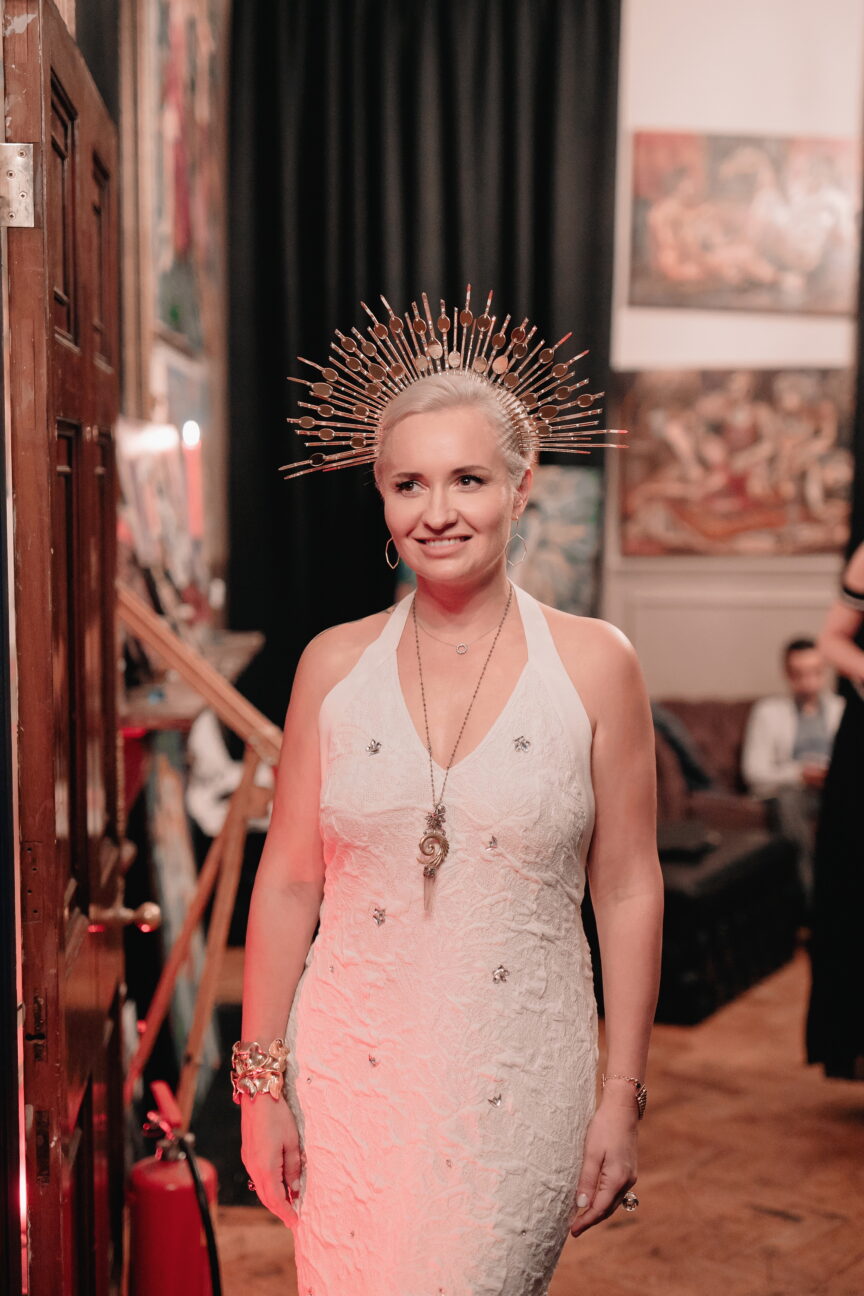
The latest episode, Solstice Happening, a part of the Portland Portal series (held in a Georgian mansion on Portland Place), marked the first occasion that aimed at both Russian-speaking and international audiences. Upon my arrival, I found the second-floor hall in a tranquil lull, the sound check just tapering off. In no time, a figure emerged, resembling both Keanu Reeves and Dave Grohl, who introduced himself as a musician (‘yet a hobby that doesn’t help pay the bills’). He lamented that his sole acquaintance was the artist Philip Firsov, whom he once assisted in unloading a minivan full of canvases—a bond now anchoring him to Semushkina’s musical escapades. Firsov, too, never misses them: his paintings, dense in narrative and execution, reminiscent of Chagall’s allegorical symbolism, adorns every Semushkina’s venue, creating a visual concert in tandem with the music.
Identifying Semushkina amidst the gathering crowd required no prior acquaintance; her presence was as towering as her stature. Adorned with a tiara that radiated like the Madonna’s aureola, she stood regally—a patroness, a host, a saint. Approaching the microphone, she welcomed the guests, kicked off the evening, and introduced the first performer—Nikita Sukhikh, a former violinist with the Bolshoi Theatre Orchestra. His performance was a study in academic precision, momentarily interrupted by a persistent English conversation near the improvised bar. ‘Please translate them that talking during a performance is disrespectful to the musician,’ a remark in Russian was so potent that even Peter ceased his sotto voce commentary. Peter soon found himself drawn away, captivated by the enigma of the next performer’s aura—the virtuoso guitarist Gennaro, introduced by Firsov as ‘a regular participant in our events,’ while reminding that the surrounding artworks could be purchased “at an affordable price.”
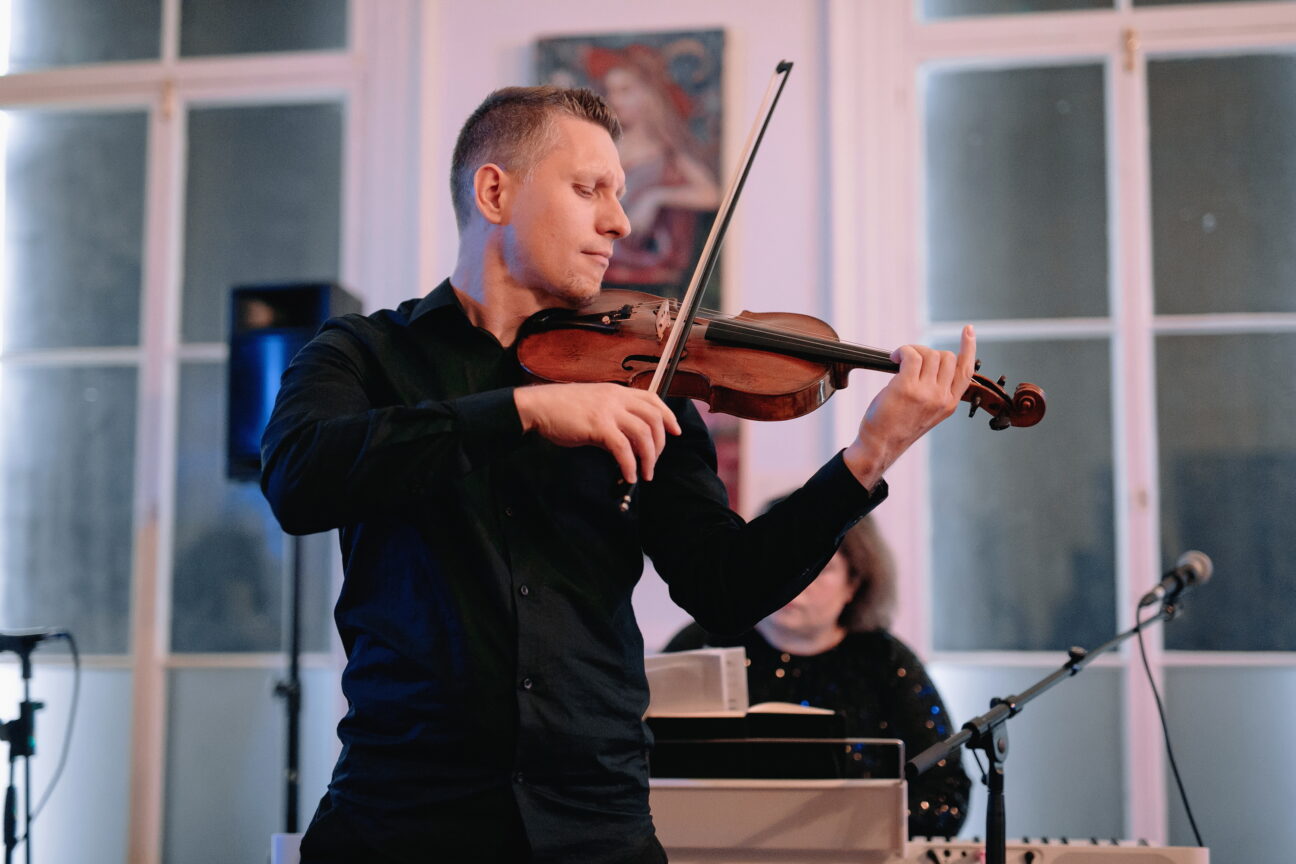
The virtuoso guitar technique, as evidenced by the applause, resonated more with the audience than the violin’s earlier strains. Next, a duo of Georgian musicians took stage (‘I really love Georgia,’ commented Semushkina; ‘I was conceived in Georgia,’ added Firsov; ‘I don’t understand what I’m clapping for,’ clapped Peter, who had reappeared nearby). Following them was ‘our youngest participant’ Varvara Sherman, accompanied by Alexey Smirnov and Konstantin Tumanov, the accordionist from the Aquarium band. Yet, it was Andrey Zamyatin’s soulful rendition of “Girls, love simple romantics…” that steered the evening’s ambiance. By then, the collective hum had evolved into a character in its own right, such that removing a few voices wouldn’t have altered the soundscape. Amidst this, the event’s photographer crossed himself before emptying a plastic cup, Firsov navigated the throng, champagne in hand, and Peter, after sharing that a few minutes ago he had ‘played the harpsichord for the first time in his life,’ vanished into the night.
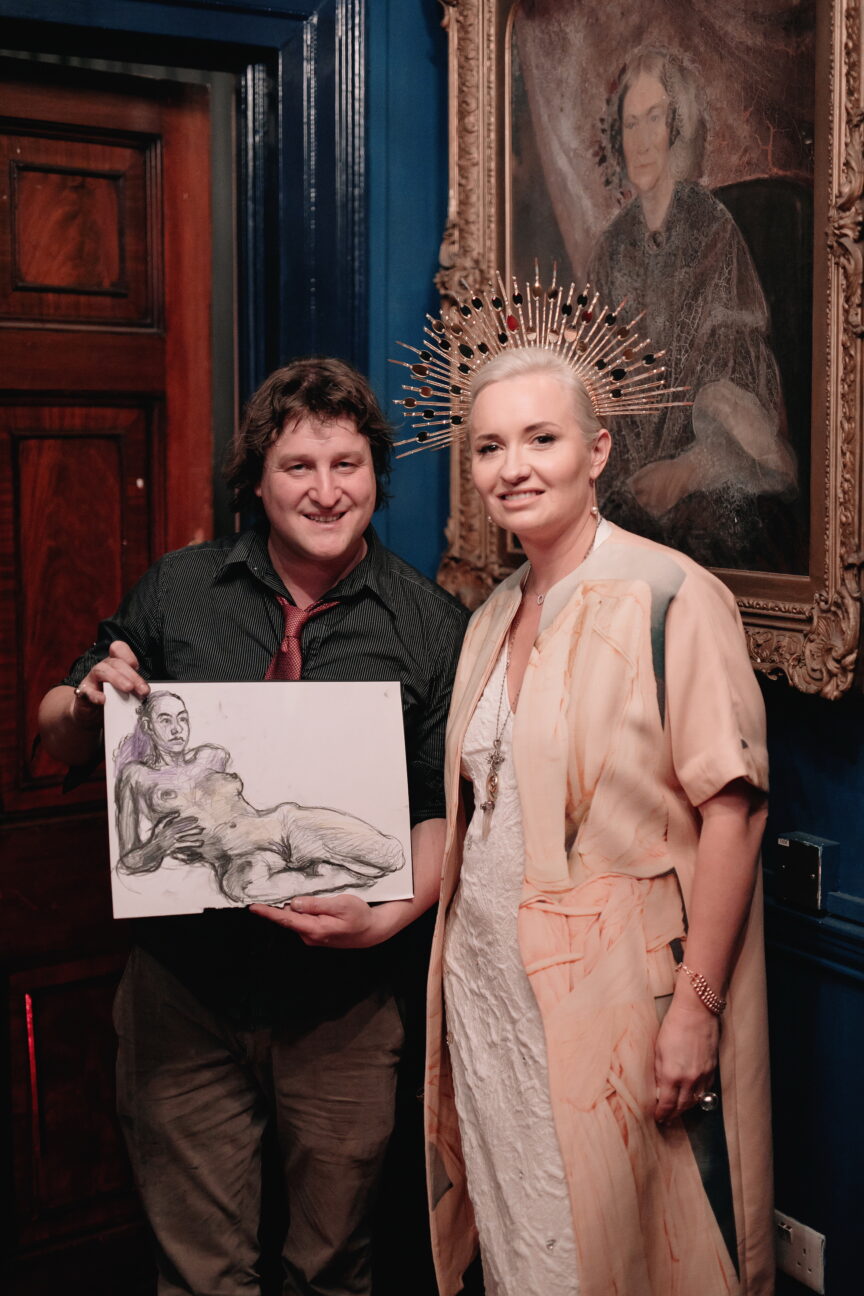
Adding the proverbial decadent edge to the event, downstairs, in the room with the harpsichord, where Firsov had simulated an ersatz artist’s studio by scattering brushes and sketches across leather poufs and the fireplace shelf, a video recording was underway: a young woman with a tablet in hand animatedly explained AI to a man lounging on the sofa (‘Are you familiar with Midjourney?’ – ‘No, although, yes, I’ve heard something about it’). The surrounding seats were occupied by individuals with deeply introspective looks, as if they had danced all night and were anticipating dawn’s permission to finally depart home.
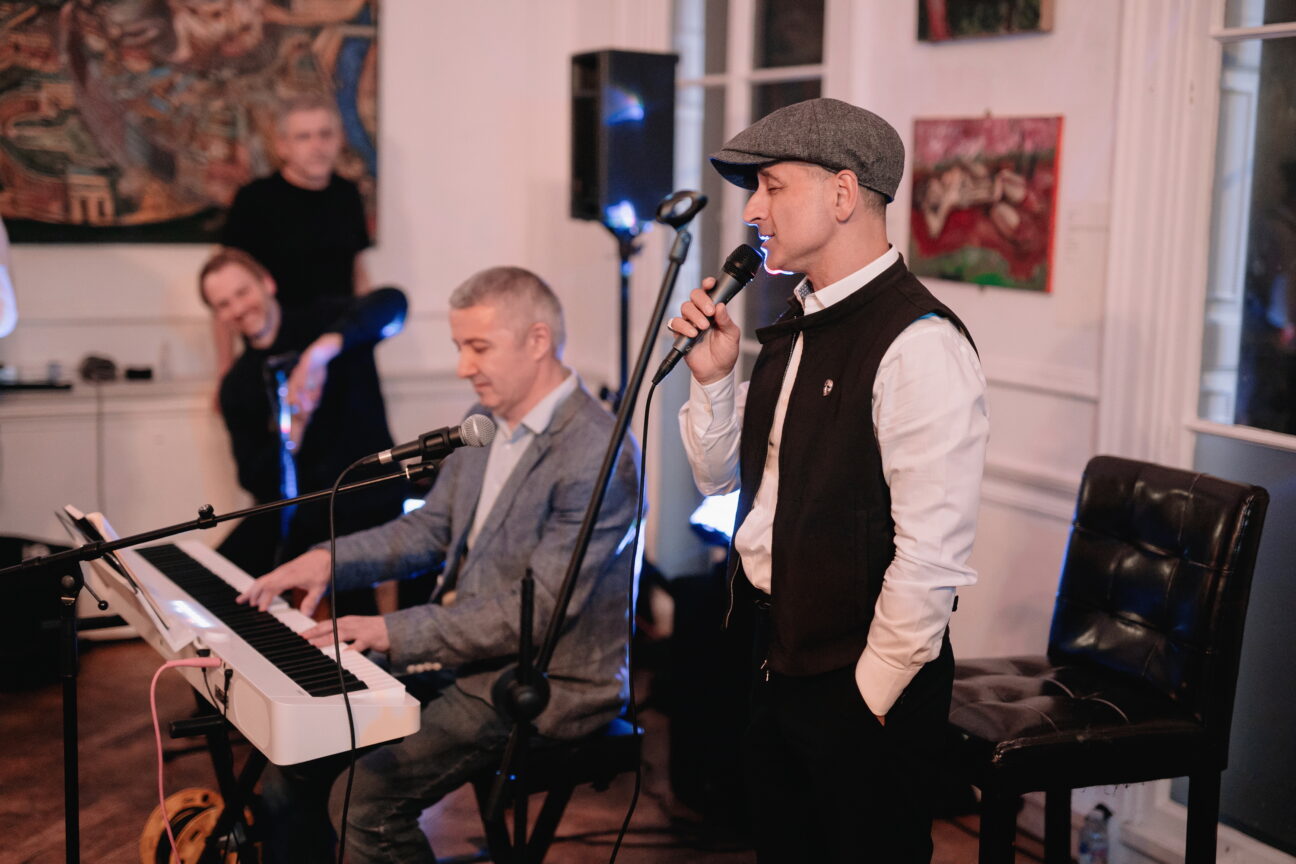
I ventured back upstairs. A combined ensemble of Georgian musicians and Zamyatin were performing Let It Be. Something mesmerizingly London-esque was swirling around along with feathered hats, a bachelorette party, rhythmic dances, and Firsov embracing young girls. The revelry was a breathing organism, a kaleidoscope—bewildering, bewitching, and utterly beguiling. The music, once the evening’s lead, had receded into the background, making way for a far more spontaneous and grander happening. If this magnificent chaos was indeed orchestrated, and if such marvels are customary at Semushkina’s parties, then her organizational prowess deserves applause!
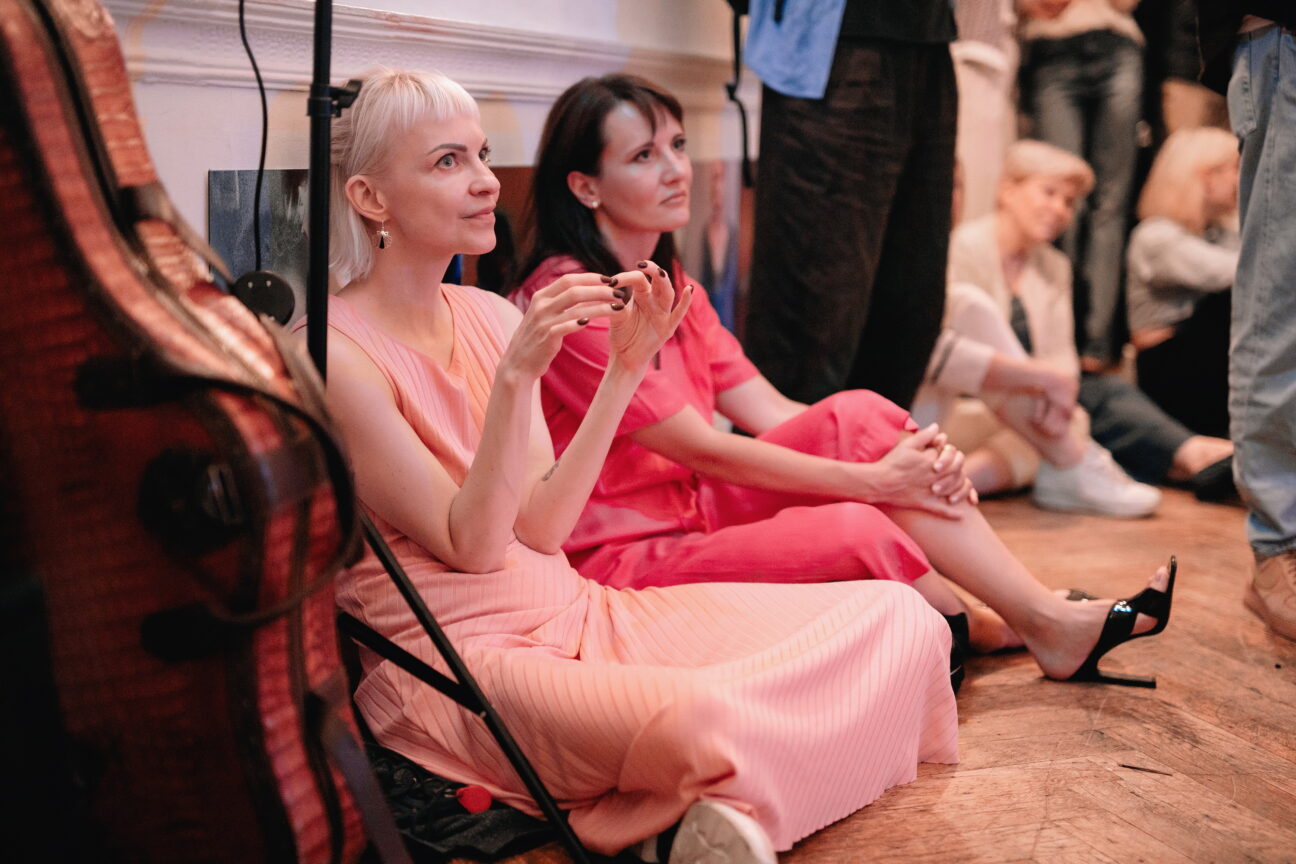
P.S. As I journeyed home, guided by the luminescence of a full moon, I remembered it was the summer solstice. London was adorning itself for the forthcoming pride parade.

